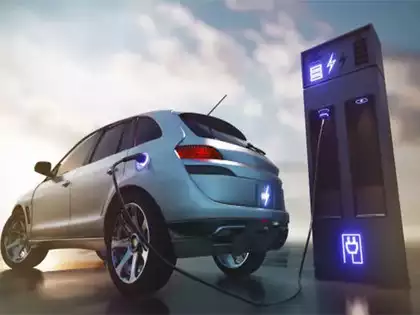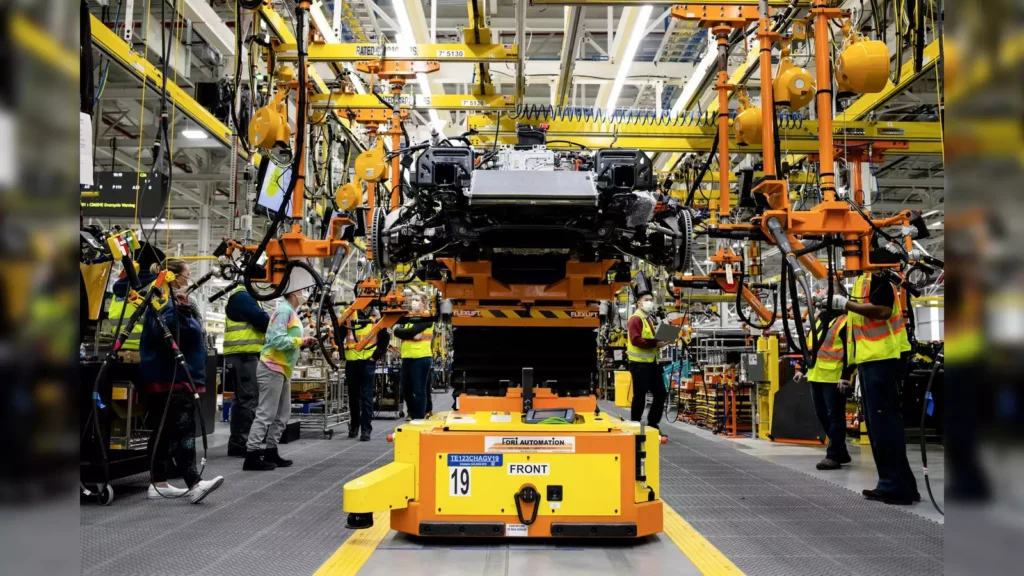The Rise of EV Manufacturing in India and Global Partnerships
India is accelerating toward an electric vehicle (EV) revolution, not just as a consumer market but as a key EV manufacturing hub. With government-backed incentives, global partnerships, and rapidly growing demand, the country is poised to become one of the world’s leading producers of electric vehicles. This transition isn’t just about sustainability — it’s also about economic opportunity, job creation, and foreign investment.
In this blog, we’ll explore how India’s EV sector is evolving, the role of Make in India in promoting EV manufacturing, key global partnerships, and why the world is increasingly looking to India as a strategic EV base.
🔗 Want to source EV components or connect with reliable automotive suppliers in India? Visit India-Agent.com to get started.
⚙️ A Snapshot of India’s EV Manufacturing Ecosystem
India’s push into EVs is driven by a mix of domestic and international forces. On the domestic side, rising fuel costs, urban air pollution, and government policies have created a fertile environment for EV adoption. Internationally, the need for diversified and cost-effective supply chains is pulling global automakers and EV startups into India.
Key Stats:
-
EV sales in India grew over 50% year-on-year in 2023.
-
The market is expected to hit 10 million EVs annually by 2030, according to NITI Aayog.
-
India is projected to become the third-largest EV market by volume globally.
🏗️ Government Support: PLI Schemes and FAME II
The Indian government has played a crucial enabling role in this transformation, especially through its Production Linked Incentive (PLI) scheme for the automotive sector and FAME II (Faster Adoption and Manufacturing of Hybrid and Electric Vehicles) policy.
Highlights:
-
PLI for Advanced Chemistry Cell (ACC) aims to boost domestic battery production.
-
FAME II allocates ₹10,000 crore for subsidizing electric buses, 2-wheelers, 3-wheelers, and passenger vehicles.
-
State-level EV policies (Maharashtra, Tamil Nadu, Karnataka) provide land, subsidies, and tax exemptions to manufacturers.
🔗 Related: Make in India 2.0: How the Manufacturing Push is Shaping the Economy
🤝 Global Partnerships Fueling EV Expansion
India’s ambitions have attracted major global EV brands and strategic investors. These partnerships are helping India build EV infrastructure, transfer technology, and scale up battery and component manufacturing.
Notable Collaborations:
-
Tata Motors and Jaguar Land Rover: Building synergy around EV design and export.
-
Ola Electric and Bosch: Collaborating on EV components and charging solutions.
-
Suzuki and Denso: Partnering for lithium-ion battery production in Gujarat.
-
Hyundai and Kia: Expanding EV investments in Tamil Nadu with plans to localize key parts.
-
Foxconn (Apple’s supplier): Investing in EV manufacturing through partnerships with Indian startups.
These alliances underscore how India is becoming an integral part of global EV supply chains, not just for domestic consumption but also for exports to Southeast Asia, Africa, and the Middle East.
🔋 Battery Manufacturing & Raw Materials
One of the most critical aspects of EV manufacturing is battery production, which accounts for up to 40% of an EV’s total cost. Recognizing this, India is:
-
Building Giga factories for lithium-ion battery manufacturing
-
Securing raw material supply chains (lithium, nickel, cobalt)
-
Encouraging recycling and second-life use of EV batteries
India’s first lithium refinery is coming up in Gujarat, and partnerships with resource-rich countries like Australia and Chile are being explored to ensure raw material access.
🔗 Related: Green Finance and ESG Investing in India: A New Chapter in the Stock Market
🏙️ Leading EV Manufacturing Hubs in India
India’s manufacturing push is not limited to a single region. Multiple states have emerged as EV hubs, each offering unique benefits:
| State | Key Features |
|---|---|
| Tamil Nadu | Known as the “Detroit of India”, home to Hyundai, Ola, Ather |
| Maharashtra | Major production base for Tata and Mahindra EVs |
| Gujarat | Focus on battery and cell manufacturing (Suzuki-Denso plant) |
| Karnataka | Bengaluru as the hub for EV R&D and startups |
| Telangana | Growing ecosystem for EV component suppliers and chargers |
🔗 Related: Top Logistics Hubs in India: Which Cities Are Driving Growth?
🚙 Segment-Wise Growth: 2-Wheelers, 3-Wheelers & Passenger Cars
While luxury EVs get attention, 2- and 3-wheelers are driving the real numbers in India’s EV landscape.
-
Electric 2-wheelers (like Ola S1 and Ather 450X) are seeing rapid urban adoption due to low running costs.
-
E-rickshaws dominate the last-mile transport in Tier 2 and Tier 3 cities.
-
Passenger EVs from Tata Motors (Nexon EV, Tiago EV) are among the best-selling electric cars in the country.
This diversified demand is making India a testing ground for scalable, affordable EV innovations that can be exported globally.
🌐 India as an Export Powerhouse
India is not just manufacturing EVs for domestic needs. It is increasingly becoming a sourcing destination for EV components, including:
-
Motors and controllers
-
Battery management systems (BMS)
-
Chargers and power electronics
-
Lightweight composite frames
Several Indian companies are exporting EV parts to Europe, Southeast Asia, and Africa. With duty-free trade agreements (FTAs) in discussion with countries like the UK and the UAE, India’s EV exports are likely to see a surge in the coming years.
🔗 Partner with trusted manufacturers and agents via India-Agent.com to explore EV component sourcing.
🧠 Challenges & What Lies Ahead
While the momentum is strong, there are still challenges to tackle:
-
Charging infrastructure is limited outside metro cities
-
Battery raw material imports still dominate
-
Skilled labor shortage in EV-specific domains
-
Price parity between EVs and ICE vehicles
However, the next five years are expected to bridge these gaps as private and public investments continue to flow in.
✅ Conclusion: India’s EV Future Is Global
India’s rise as an EV manufacturing destination is not just about meeting domestic goals. It reflects a broader strategic shift toward becoming a global production and export base. Backed by government incentives, strong private investment, and international partnerships, India’s EV industry is charging ahead.
Whether you’re a global brand, investor, or importer, now is the time to tap into India’s electric future.
🌐 Ready to Connect with EV Manufacturers in India?
🔍 Find reliable factories, component makers, and export partners with India-Agent.com — your trusted gateway for:
-
Factory visits
-
Due diligence
-
Product sourcing
-
Business setup assistance in India’s EV sector

